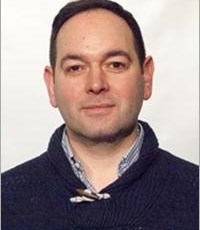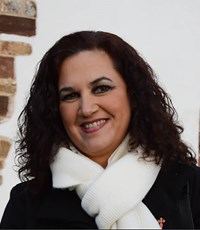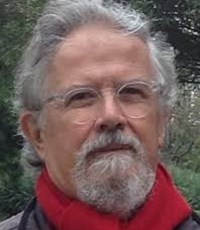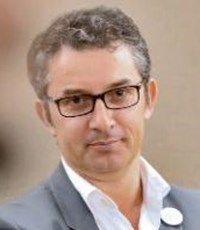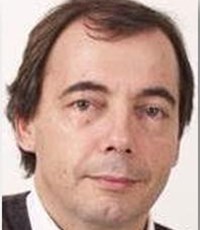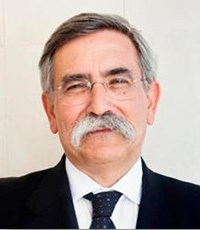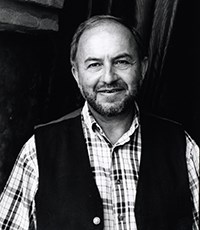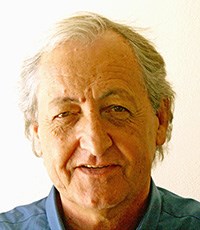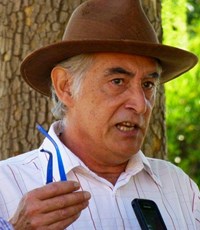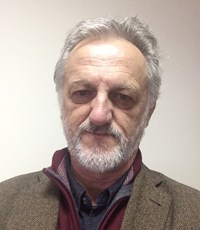Seminário EN
The Cultural Week – Lugares de Globalização is the result of a partnership formed by (Algarve’s Culture Department), the Municipalities of Aljezur, Lagos, Monchique, Silves and Vila do Bispo, the Região de Turismo do Algarve (Algarve Tourism Board) and the Association LAC.
The project is inspired by the content of the application for the UNESCO National Commission, with the same name, submitted by the Região de Turismo do Algarve jointly with the Direção Regional de Cultura do Algarve and the Municipalities of the target territory, which enabled the registration of these territories in the Portugal’s World Heritage Tentative List. These sites are distributed by 5 countries: Portugal - Aljezur, Lagos, Monchique, Silves and Vila do Bispo, in the Algarve; Angra do Heroísmo and Vila do Porto, in Azores and Funchal, in Madeira; Spain – Ceuta; Cape Verde; Morocco; Mauritania. These sites are part of the universal memory related to the imaginary of important historical changes (...)”.
This seminar intends to be the Cultural Week opening moment thru the meeting of responsible people for several “sites” and activity sectors, specialists, investigators and general public.Thus, it takes place and provides the first public moment of meeting and also information and perspectives sharing, to involve and add partners and offer the necessary cooperation commitment, to the national and international affirmation of the “Globalisation Sites”.
Scientific commissionAlexandra Rodrigues Gonçalves
Rui Loureiro
João Guerreiro
Program 09h00 Reception and registration of participants
09h15 Opening Message
Maria Joaquina Matos Lagos Town Council Chairwoman09h30 Cultural Week – The contextAura Fraga
Association VicentinaPANNEL 1
Fundamentals and Multiculturalism09h45 Historical Fundamentals
These places have remote traces and registries as globalisation sites, which write up and sign in our collective memory marking our identity. Which traces and registries are those? Where can we find those traces? Where can we see those registries?
Moderator - Rui Loureiro
Director, ISMAT – Superior Institute Manuel Teixeira Gomes
The Algarve and the first World globalisation
João Paulo Oliveira e Costa
Full Professor in the Faculty of Social and Human Sciences, Universidade Nova of Lisbon
The Algarve’s architecture during the Portuguese Discoveries
Manuel F. Castelo Ramos
Investigator
The shipbuilding and the forests in the Atlantic’s recognition
Miguel Martins
Investigator, Nautical and Underwater Archaeology/ Dendroarchaeology
The creation of trade places in Algarve’s urban centres, centuries XV-XVI
Daniela Pereira
Investigator Evora University
11h20
Debate
11h45
Break
12:00
Multiculturalism and Interculturalism – Encounter of cultures and convergence of know-how
These places have remote traces and registries as globalisation sites, which write up and sign in our collective memory, marking our identity. Centuries later, where are, in these places daily life, traces and signs which had shaped our identity and had installed and remain indifferent to time?
The slaves in Portugal, in the XV and XVI century – Economic and cultural impacts of human traffickin
Arlindo Caldeira
CHAM Investigator, Universidade Nova of Lisbon
Algarve and Morocco, a territory of historical, cultural and human continuity
José Alberto Alegria
Architect; Honorary Consul of Morocco kingdom in the Algarve
12h45
Debate
13h00
Free lunch
PANNEL 2
Cooperation and Tourism
14h30
Cultural Heritage and Tourism – Cooperation and Networking
If there are registries and traces of common identities, how do those sites link and how do those traces affirm themselves, in a joint celebration, and also how do our taste reveal itself to the world, now marked by modern values of cultural exchange and dialogue among communities and people?
Moderator - João Guerreiro
Full Professor, Algarve’s University
Cultural Heritage and Sustainable Tourism – The Sites Management
Luís Raposo
Scientific Director of the Lisbon’s Archaeology Museum, Chairman of the ICOM – Europe’s International Council of Museums and Member of UNESCO Portuguese National Commission’s Advisory Board
Heritage and Tourism: which place for the museums, which place for communities?
José Gameiro
Scientific Director of Portimão’s Museum, Director of ICOM Portugal and EMYA- European Museum of the Year Award and Council of Europe Museum Prize’s (CoE) jury president
15h30
Debate
15h45
Break
16h15
Cultural Heritage and Tourism - Challenges
Assuming the universal interest of the historical registries and traces of these sites, of that common identity and modern values of cultural interchange and dialogue among people, how can tourism contribute to affirm these places in the world? How to structure tourism product around these places which affirm their identity and values?
Heritage tourism promotion
Carlos Martins
Founder and Executive Director of the OPIUM. He was the executive director of Guimarães 2012 European Capital of Culture, president of the Development Agency of Creative Industries in the North Region and member of the National Council of Culture.
Cooperation, Networks, Creativity and experiences promotion – The big challenge
Alexandra Rodrigues Gonçalves
Cultural Regional Director of the Algarve
17h00
Debate
17h30
Official Opening of the Cultural Week

 SEMINAR «LUGARES DE GLOBALIZAÇÃO»
SEMINAR «LUGARES DE GLOBALIZAÇÃO»
